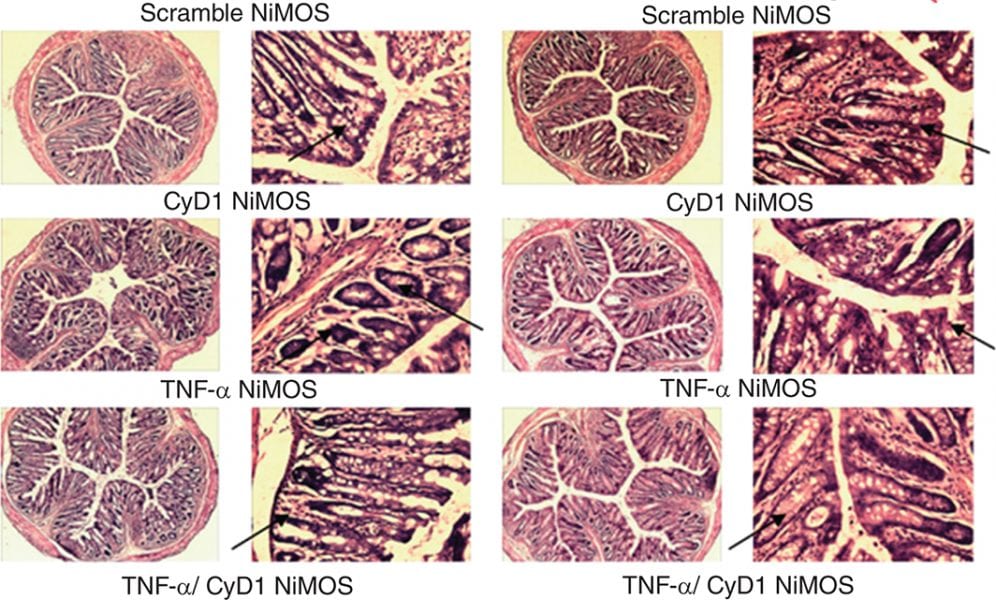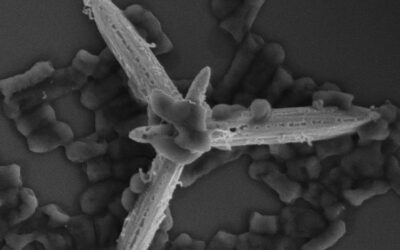DNA and RNA (nucleic acids) interference therapies have the potential to treat many human diseases, particularly those stemming from the gastro-intestinal (GI) tract, by transferring genetic materials to diseased cells to inhibit abnormal gene expression. In RNA interference, RNA molecules inhibit or suppress gene expression by neutralizing targeted molecules. Small interference RNAs are double-stranded molecules capable of targeting genes based on complementary base pairing. MicroRNAs are single-stranded and play a regulatory role in the expression of proteins by inhibiting mRNA translation. These can be used for treating diseases stemming from abnormal gene over-expression. Both need access to the cellular cytoplasm in order to successfully silence the gene.
To treat human diseases, researchers must be able to safely and effectively deliver nucleic acids to their targets. Delivery vectors must protect the encapsulated material while traveling through the GI tract, and also be safe and easy to tolerate. Orally delivering nucleic acid therapy is a particularly promising option because it is simple to administer, non-invasive, and cost-effective. However, only a small percentage of these doses travel successfully to the disease site. They are impeded by anatomical and physiological barriers, including rapid degradation at low gastric pH and enzymatic degradation in the intestines.
In the review article “Oral Nucleic Acid Therapy using Multi-Compartmental Delivery Systems” published in WIREs Nanomedicine & Nanobiotechnology, scientists from Northeastern University discuss the development of multi-compartmental delivery systems for orally administering nucleic acid therapies. Using the example of a nanoparticles-in-microsphere oral system for gene and small RNA delivery shows that it is possible to overcome some of the barriers. Specifically, the researchers tested this system to target colitis in mice. When delivered orally, it has shown efficient gene silencing, along with favorable downstream anti-inflammatory effects. In the future, this method could also be used to treat other gastro-intestinal issues such as celiac and chronic inflammatory diseases.

















